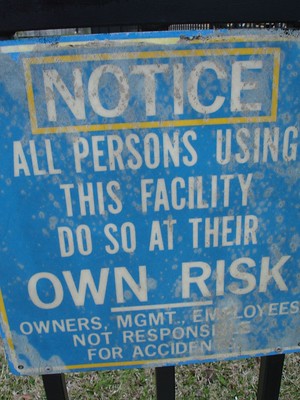Yesterday, I wrote about the upcoming implementation of the gainful employment rules as they relate to federal financial aid. Most community colleges in Michigan won’t feel the pinch of these rules as much because most Michigan two-year schools haven’t taken the dangerous path that WCC’s recent administrations have chosen to follow.
There’s something fundamentally wrong with a degree-granting institution going all out on non-degree certificates. These programs, which often consist of a few related classes cobbled together, are probably best suited for working adults who already possess a degree and simply want to accumulate some specialized knowledge or skill(s).
Outside of that context, they’re inadequate substitutes for degrees. It’s not clear to me that students who opt to earn a certificate understand that they’re not earning a degree – that taking classes is not the same thing as pursuing a program of study to the point of subject matter expertise. It’s also not clear that students differentiate between a “certificate” and “certification,” which, of course, represent two different educational statuses.
If these things are not clear to me, how do employers look at them? How do co-workers and colleagues who have taken the time to earn a degree perceive team members who come to work armed with a certificate? My observations – which are admittedly anecdotal – are that these certificate-holders are not seen in the same light and not measured in the same way as those who earned degrees. I have heard employers complain about the depth of knowledge and skill (or lack of it) that these workers bring with them when they enter the workforce. It’s not pretty, and it doesn’t reflect well on the institution.
Now, we can add in a third-party (the Department of Education) that will determine ex post facto whether these non-degree certificates hold any water.
Gainful employment carries risk for public institutions
What happens if and when these certificates are found lacking? These skill-based certificates already come with a built-in expiration date. (Many associate degrees do, too, so that’s not entirely unique to certificates.) But it represents a concentration of perishable credentials that have collected at the community college level. That raises questions about the long-term value of community college credentials altogether.
Will students who have completed these junk certificates be entitled to a refund? Or will the schools be required to reimburse the Department of Education? Are the institutions going to be subject to individual fraud lawsuits – or even class-action lawsuits over the worthless credentials they pawned off on unsuspecting students? Will negative findings by the Department of Education on an institution’s non-degree certificates lead to problems with accrediting agencies? Top-to-bottom reviews of all degree programs?
You have to admit that the prospect of a taxpayer-funded institution peddling worthless certificates and being publicly identified as such is troubling. It would be even more troubling to find a slew of these programs identified as worthless by the Department of Education.
So, of course, the question comes back to the approval process for this. There is no risk analysis done on these programs before they’re added to the catalog, but clearly, they now represent a significant risk. It’s not too late to examine the dozens of certificate programs that WCC currently offers and eliminate those that appear to be likely to fail the gainful employment tests.
It is also not too late to develop new degree programs that fully avoid the risk of the new gainful employment analysis. Developing new programs is something that WCC should be doing all along. A new standard of any program must be its immediate employment and earning potential.
It comes down to accountability
Real metrics must replace the cursory salary and employment outlook information that the Administration places in front of the Board of Trustees when it seeks approval for a new program. And the Board must ask for actual earnings performance of a program at the one-year and two-year marks compared to the expected performance of the program at the time it was approved.
When the actual performance of a program differs wildly from its anticipated performance, the Trustees are going to have to ask some hard questions about why there is such a large discrepancy between what they were told about a program, and what happened once it was operational.
That’s how accountability works.
Photo Credit: Shawn Rossi


























